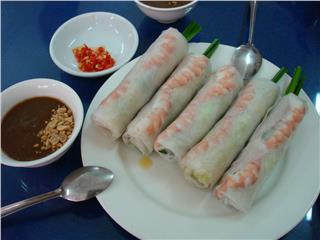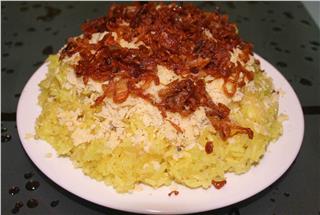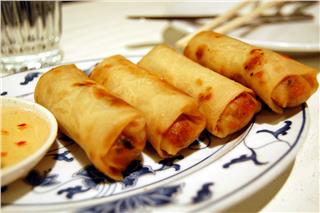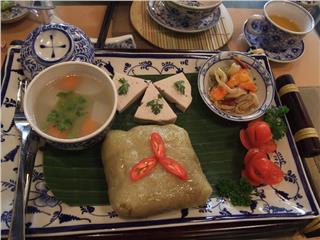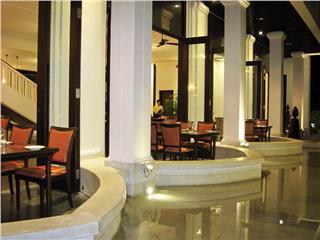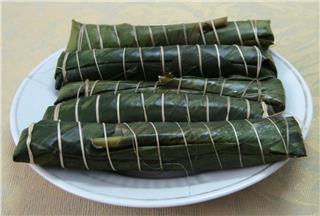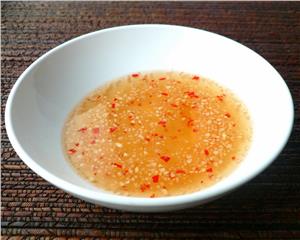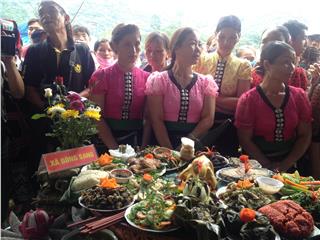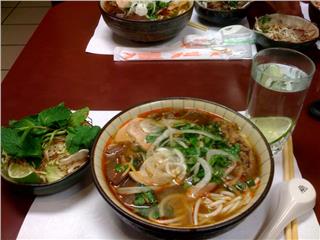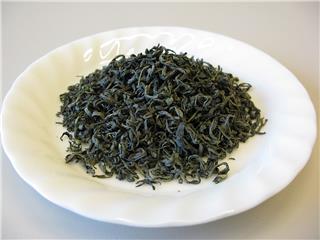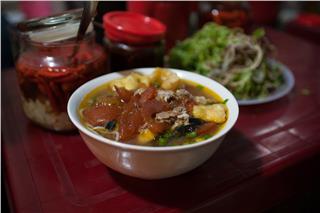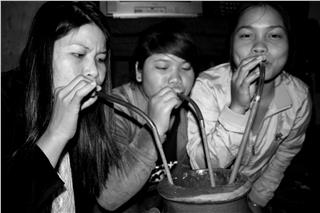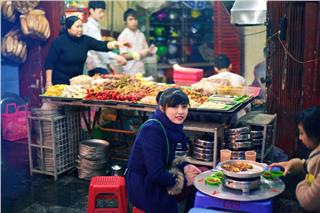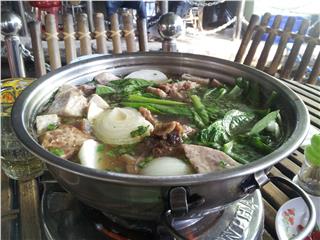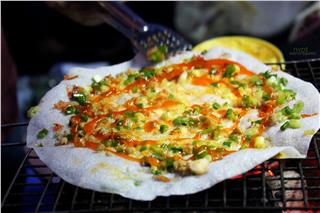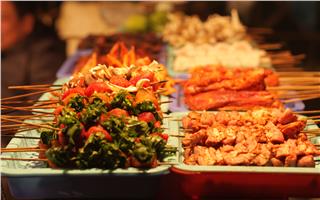Traditional Vietnamese Tet food
Fri, 10 Apr 2015 . Last updated Thu, 25 Jun 2015 09:05
-
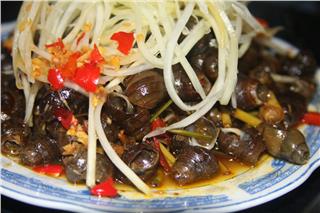 Tasty snail dishes in Vietnamese cuisine 6857 viewed
Tasty snail dishes in Vietnamese cuisine 6857 viewed -
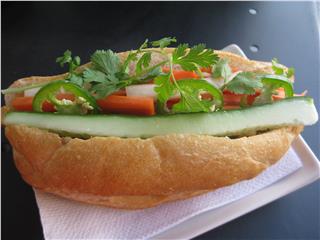 Taste of Banh Mi in Vietnam cuisine 6208 viewed
Taste of Banh Mi in Vietnam cuisine 6208 viewed -
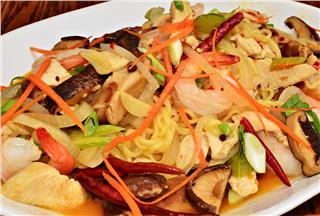 Delicious Vietnamese mushroom dishes 5835 viewed
Delicious Vietnamese mushroom dishes 5835 viewed -
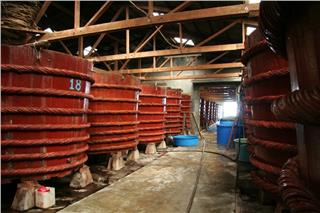 Phu Quoc fish sauce 5543 viewed
Phu Quoc fish sauce 5543 viewed -
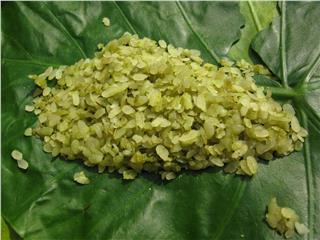 Com Vong special dish of autumn in Hanoi cuisine 5523 viewed
Com Vong special dish of autumn in Hanoi cuisine 5523 viewed -
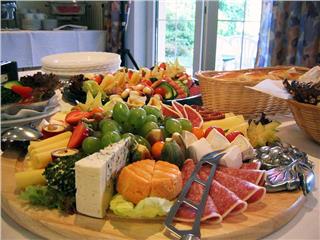 German food culture in Hanoi 5147 viewed
German food culture in Hanoi 5147 viewed -
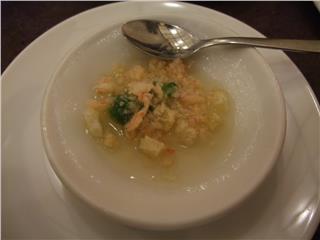 Assorted cakes in Hue cuisine 5027 viewed
Assorted cakes in Hue cuisine 5027 viewed -
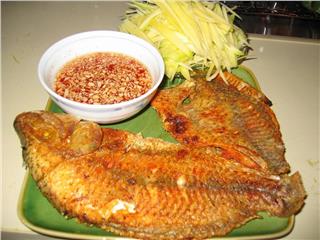 Delicious Vietnamese fish dishes 4999 viewed
Delicious Vietnamese fish dishes 4999 viewed -
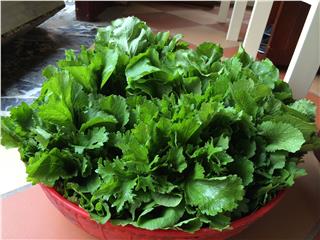 Sapa green cuisine 4924 viewed
Sapa green cuisine 4924 viewed
Tet food takes up an important position in Vietnamese cuisine. The sophistication and delicacy are clearly shown through each dish. The recipes of Vietnamese Tet food have been handed down from generation to generation.
Tet Nguyen Dan, or known as Tet festival, has always been the most important celebration in Vietnam for thousands of years. Despite changes of life, everyone finds this festival a good chance to express respect towards their forebears. Tet dishes reveal ideas, philosophies, religious beliefs, aesthetic values and fine traditions of the nation.
Vietnamese people have prepared for Tet festival since the Kitchen God’s Day on the 23rd of lunar December. The Kitchen God is believed to be the closest deity to every family in Vietnam, who will drive carp back to the Heaven to report the activities of the families over the past year to the Jade Emperor. Rituals to see the Kitchen God back to the Heaven are conducted at noon or in the afternoon of the 23rd day of lunar December. Before Tet festival, Vietnamese people make “chung” cake, “day” cake and many other delicious dishes to offer to their forebears.
Goods for Tet flood the markets these days. As the sellers will stop all business activities during Tet festival, buyers try to purchase as many goods as they can. As a result, demand for Tet food these days increases sharply. Tet festival is the best time for all members of the family to get together, rest and enjoy tasty food. Therefore, housewives play an increasingly important role these days.
Dishes like “chung” cake, pickled onions, pork pie and sugared fruit are indispensable in traditional Tet festival in Vietnam. We can see the carefulness and elaboration through the dishes for family reunion dinner when spring comes.
The legend of “Chung” cake is closely associated with the legend of Hung Kings, who were the ancestors of the Vietnamese people. This special kind of cake is indispensable to every family. It expresses Vietnamese people’s gratitude towards their ancestors. When Tet festival is coming, Vietnamese people of many generations are touched by the feeling they get when gathering around the “chung” cake pot and waiting until the cake is done to a turn. “We live on rice. From sticky rice we make round-and square-shaped cakes which represent Heaven and Earth. Wrapped in green leaves, stuffed with pork and green beans, “chung” cake shows the way in which humans are formed in their mothers’ wombs.” The story of “chung” cake and its ingredients show how delicate Vietnamese people are. The ingredients of the cake consist of sticky rice, green beans and pork, which are typical farm produce of Vietnam, an agriculture-based country.
The strength of the community is clearly shown through the way the cake is made. All family members make and boil the cake in a bustling and cozy atmosphere of the last days of the year. This has become part of our unforgettable memories. The cake is wrapped in fresh phrynium leaves which are neither young nor old, have the same size and beautiful green color. Sticky rice, the main ingredient, is chose carefully. High quality newly-harvested sticky rice brings fragrance to the cake and increases its deliciousness. Plump green beans with yellow core perfect the cake. Pork belly brings tasty greasiness to the cake. The meat is spiced with salt, pepper and chopped onions. Salt is added to sticky rice and green beans, too.
“Chung” is boiled for more than 10 hours over a low heat. When the cake is done to a turn, the rice becomes soft. The butteriness of green beans and the greasiness of pork belly go well together. All bring the unique flavor to the cake which reveals a life philosophy for living in harmony with each other.
Mentioned in the well-known parallel sentences: “Fat meat, pickled onions, red parallel sentences. New Year tree, strings of firecrackers, green Chung cake”, pickled onions, a popular dish, not only helps increase our appetite, but also prevails over the greasiness of food rich in protein. That’s why many families make this dish for Tet festival. Sugared fruit, which holds an irresistible appeal, is indispensable in traditional Tet. Growing abundantly inour country, many kinds of fruit are sugared, for example: watermelon, tomato, coconut, carrot, sweet potato, kumquat, apple, lotus seed, etc. Sugar fruit with eye-catching color and tasty flavor starts the New Year’s talk in a sweet way.
Braised pork belly always takes up a position on the Tet food tray in the South. Meanwhile, frozen meat is a typical Tet dish in the North. This dish is cooked and enjoyed easily. The main ingredient of the dish is meat, but never does it cloy our appetite. Meat is simply cooked and then frozen. However, each type of meat is cooked and garnished in a different way with many other ingredients. Tet dishes that go well with each other, such as “chung” cake and pork is pie with pickled onions, braised pork belly with pickled green bean sprouts, or frozen meat with hot steaming cooked rice, make the Tet feast perfect. Frozen meat served with pickled onions, hot steaming cooked rice and chilli fish sauce is enough to warm up diners on chilly days. It’s Tet festival in the North.
The Tet five-fruit tray plays an irreplaceable role in Vietnamese families. The five-fruit tray is placed next to “chung” cakes and a plate of steamed momordica sticky rice on the ancestral altar. Five kinds of fruit with different colors and shapes create a lively painting. Banana or finger citron means protection. Pomelo or watermelon with round shape reveals a prosperous and lucky New Year. Persimmon and mandarin orange with impressive colors symbol the success.
The five-fruit tray adds more beautiful colors to the ancestral altar on Tet days. Each part of the country has Tet specialties. For example, Southern people make “tet” cake (similar to “chung” cake in the North) and place watermelon on the ancestral altar. Boiled chicken and steamed momordica sticky rice are indispensable on the offering food tray. It is said that the red color of momordica will bring good luck to every family in the New Year.
In the hurrying atmosphere of the last days of the year, people rush to prepare for Tet. However, food is still prepared carefully for the Kitchen God’s Day, the last meal of the year, the New Year’s Eve and the votive offerings burning ceremony.
Each dish bears life philosophy and national identity. “Chung” cake, for example, has natural green color, the glutinousness of sticky rice, the butteriness of green beans, the greasiness of pork belly and the piquancy of pepper. Frozen meat stands out thanks to the sweetness of meat, the crispiness of woodear mushroom. The dish goes well with pickled onions which add more beautiful colors to the Tet feast. Sugared tomato with attractive red color is a warm welcome to guests during this special occasion. The sweetness of sugar and the coolness of tomato comfort our feelings.
Source: VTC10 - NETVIET

